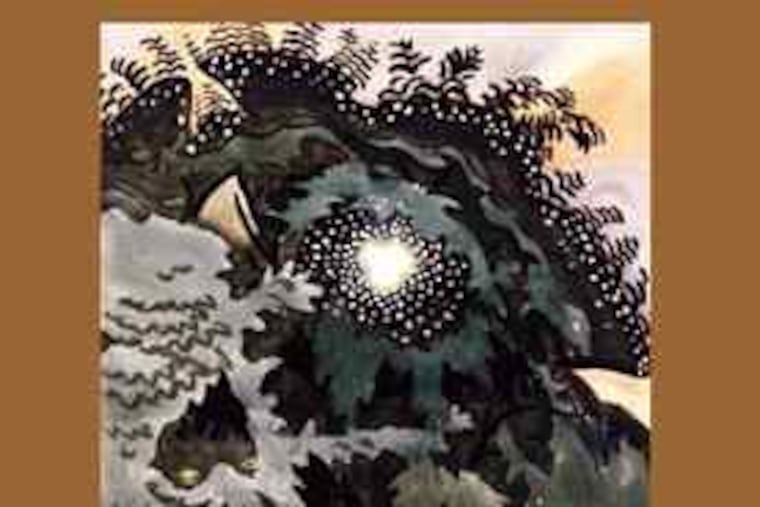Light, shadow and a hint of heartbreak
Edward Byrne's sixth poetry collection is in many ways as mysterious and elusive as the permutations of light and shadow for which Byrne has such a canny eye.

nolead begins Poems nolead ends nolead begins
By Edward Byrne.
Turning Point. 102 pp. $18
nolead ends nolead begins
Reviewed by Frank Wilson
Edward Byrne's sixth poetry collection is in many ways as mysterious and elusive as the permutations of light and shadow for which Byrne has such a canny eye.
In the opening poem, "Moonlight in the City," the speaker, remembering when he was an 11-year-old boy "not a block from the waterfront," tells how he "watched as a fresh wash // of moonlight began to flow over rooftops." It turns out the exact date is July 20, 1969, the date of the first moon landing. But some other details may be more telling than the triumph of the astronauts, namely, that the boy's father "was far away // again, driving deliveries along an interstate," and that his mother "was sitting alone at home."
Thirty-four pages later, the speaker in "Envying the Art of the Cartographer" tells how "One more time, I am away from home, driving by // on a two-lane blacktop as a line of daylight again / tightens along the horizon before tipping to twilight." This poem appears about halfway through the book, and its speaker also tells us, "I often must edit the world before me," something we are reminded of toward the end of the volume in what is in many ways the strangest of the poems, "Summer Evening: Truro, 1947."
The title refers to a painting by Edward Hopper, of a couple standing on the porch of a cottage in Truro, Mass., where the Hoppers had a summer home. Hopper would also seem to be the speaker - though what he says could easily be said by the speaker in all of the other poems:
"Sometimes, I never consider putting figures in
until I actually start painting . . .
I'd prefer to leave them out."
He remembers "an earlier August night in Nyack . . . and how those lovers I thought I saw embracing / on a neighbor's lawn remain, // somewhat vaguely in my faulty recall . . . "
Since he "must mix imagination // with any of my memories," he decides:
. . . I will fill this spare
setting the way I often have before: the couple
are now outside a closed door
and caught in another conversation that cannot
be heard by anyone else . . .
He goes on to describe the scene strictly in terms of line and light and shadow, then notes:
After all is done, some may say
the young woman in this painting appears unhappy
or reluctant and the young man
seems to be offering an explanation or attempting
persuasion, that these two represent
tension and express discontent we've all experienced.
"But," he adds, "I know none of this is true." He puts it quite bluntly: "Although others can endlessly speculate about / the troubled lives of both figures // their personal story was not a real concern for me." Instead, "it is an exercise in composition and form: merely light / streaming down . . . "
What makes this poem seem pivotal is that, throughout the collection, we are given glimpses of an unnamed couple. Toward the beginning, they are waiting for a cross-country bus during a snowstorm. Toward the end, in "After Leaving the Hotel," set in Manhattan during the Christmas season, the speaker remarks upon "our odd absence of pain / and the cold we both noticed on that last / afternoon . . . " This is "followed by feelings of loss / and regret . . . normal emotional costs a couple // might expect . . . upon leaving / the site where their love's come undone."
One cannot help speculating "about / the troubled lives of both figures." It is hard to believe that "their personal story was not a real concern." These poems, with their subtly virtuosic displays of rhyme, alliteration, and assonance, their sharply focused details, seem a good deal more than a mere "exercise in composition and form." They have too much heartbreak in them for that.